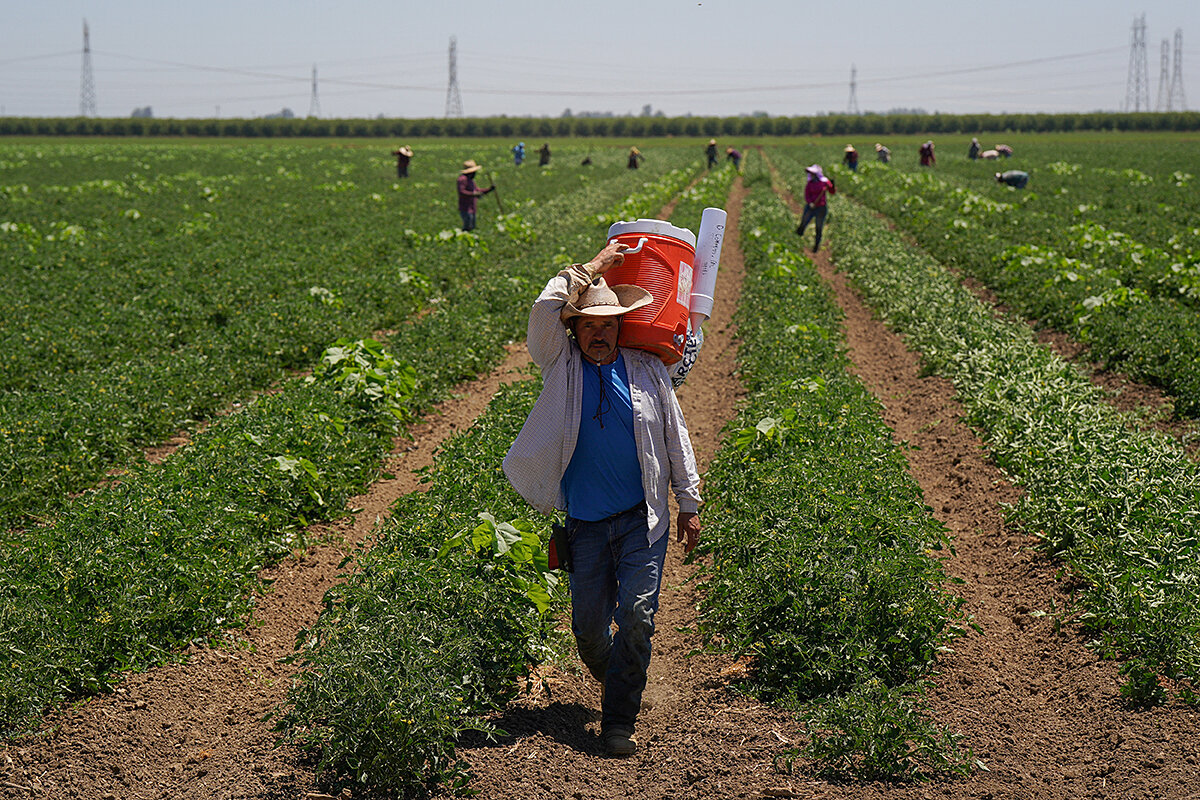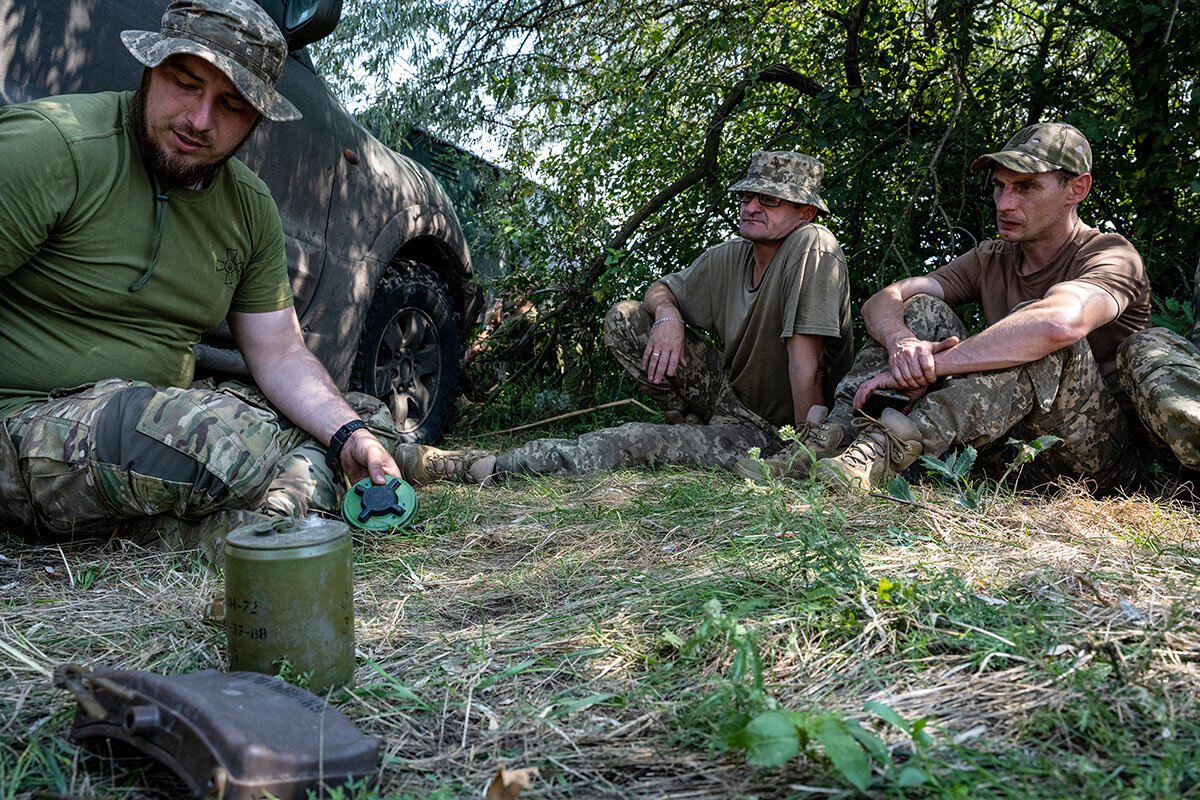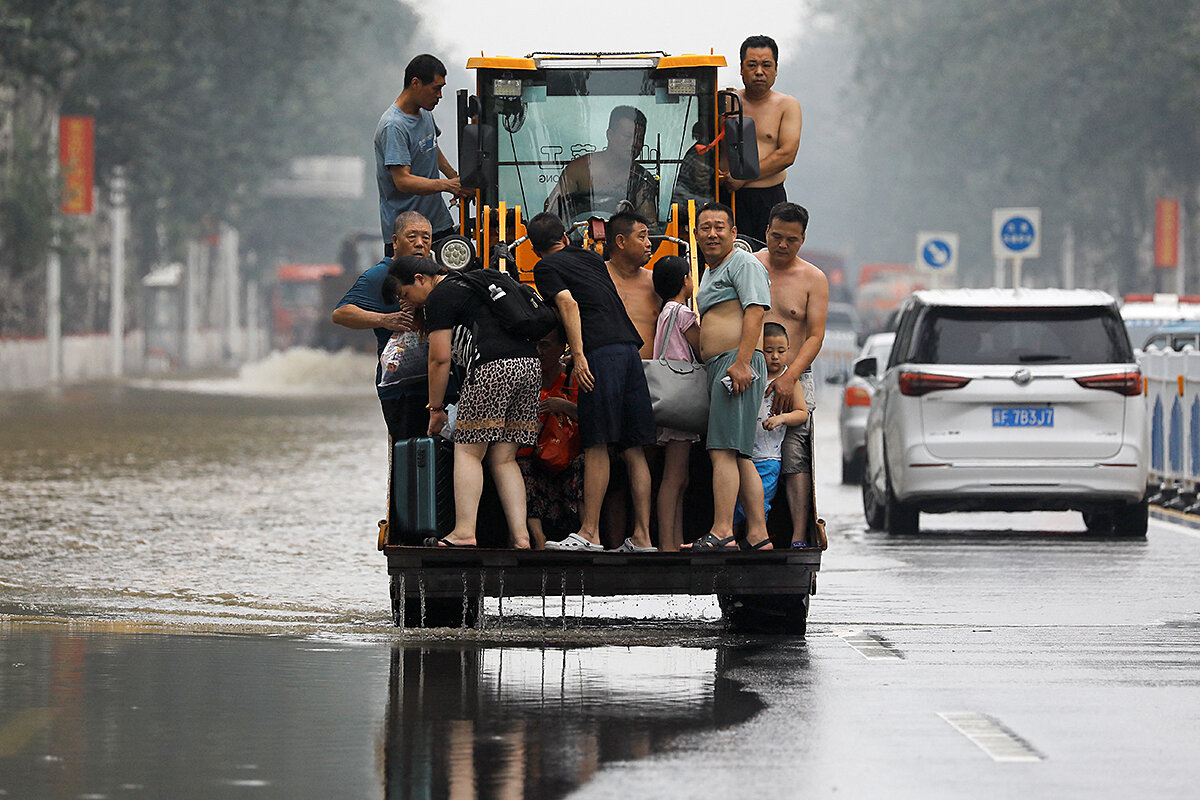Record-breaking heat this summer has raised risks for millions of American workers in hot conditions. This is helping to spur a rethink of how the country manages extreme heat and labor.
Monitor Daily Podcast
- Follow us:
 Linda Feldmann
Linda Feldmann
When I tell people a generation younger that I went to the “Barbie” movie, the response is often, “Why?!”
To which I respond, “Why not?” What better way to escape the Washington heat – and politics – on a Sunday afternoon in July than with a live-action fantasy about an iconically kitschy, mass-produced doll? Plus, I wanted a good laugh.
But I soon discovered there was more to the film than a frothy pink romp through Barbie Land (and beyond) and many jokes at the expense of poor Ken. “Barbie” the movie – reviewed here by the Monitor – is really an invitation to think about how we raise our children, and about expectations.
It also invites introspection about our own childhoods. I remember, as a kid in the 1960s, playing with Barbies at friends’ houses but not having Barbies of my own. So, as I often do, I tested my memory in a call to Mom. And indeed, I was right. We were a Barbie-free household.
“I didn’t really believe in Barbies,” she said. “I just thought they were a little bit much – the body shape, then all the clothes.”
My own daughter, now well into adulthood, had lots of Barbies: six, to be precise, recently discovered in varying degrees of disarray in a box in the basement. I didn’t buy them; Barbies just had a habit of walking in the door. Ultimately, I don’t think all those Barbies shaped my daughter’s worldview in any meaningful way.
Barbies are hardly “feminist icons,” no matter how hard Mattel marketed President Barbie or Astrophysicist Barbie. But I also don’t see them as necessarily damaging to young psyches. Sometimes a doll is just a doll.













